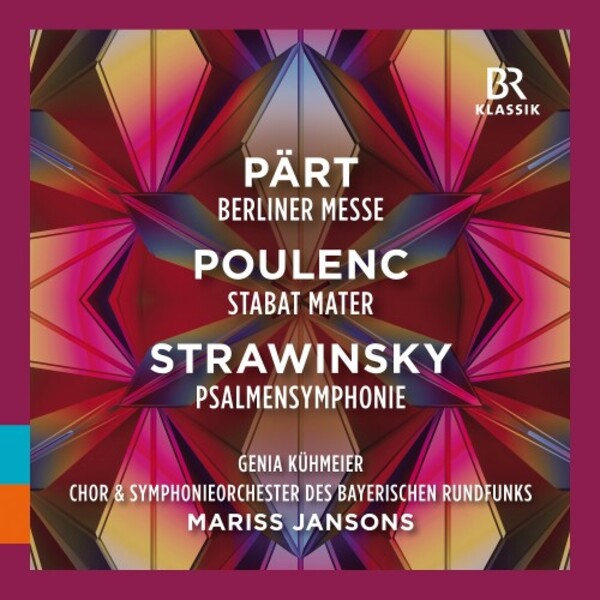
Part - Berlin Mass; Poulenc - Stabat mater; Stravinsky - Symphony of Psalms
£13.25
In stock - available for despatch within 1 working day
Despatch Information
This despatch estimate is based on information from both our own stock and the UK supplier's stock.
If ordering multiple items, we will aim to send everything together so the longest despatch estimate will apply to the complete order.
If you would rather receive certain items more quickly, please place them on a separate order.
If any unexpected delays occur, we will keep you informed of progress via email and not allow other items on the order to be held up.
If you would prefer to receive everything together regardless of any delay, please let us know via email.
Pre-orders will be despatched as close as possible to the release date.
Label: BR Klassik
Cat No: 900201
Format: CD
Number of Discs: 1
Genre: Vocal/Choral
Release Date: 6th May 2022
Contents
Artists
Genia Kuhmeier (soprano)Chor & Symphonieorchester des Bayerischen Rundfunks
Conductor
Mariss JansonsWorks
Berliner MesseStabat mater, FP148
Symphony of Psalms
Artists
Genia Kuhmeier (soprano)Chor & Symphonieorchester des Bayerischen Rundfunks
Conductor
Mariss JansonsAbout
The Estonian composer Arvo Pärt, famed for his magical sounds, created his Berlin Mass as a commission for the 90th German Catholic Convention in Berlin. It was premiered in 1990 for four mixed solo voices and organ. In 1997, Pärt reworked his Mass, written in the so-called "Tintinnabuli" style, for choir and string orchestra.
Francis Poulenc wrote his Stabat mater in response to the unexpected death of his friend, the artist Christian Bérard. Like other sacred works written after his visit to the Black Madonna of Rocamadour, where he found his Catholic faith, this one ranks among his most important compositions.
Igor Stravinsky's well-known Symphony of Psalms, a three-movement symphonic work for choir and orchestra, was written in 1930 as a commission for the Boston Symphony Orchestra. The unusual orchestration – with strong woodwind and brass, percussion instruments, two pianos and only the bass strings (violoncellos, double basses) without violins or violas – gives the work its distinctive sound.
Error on this page? Let us know here
Need more information on this product? Click here